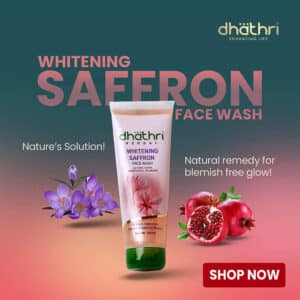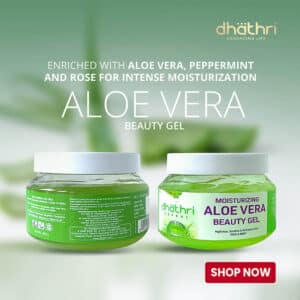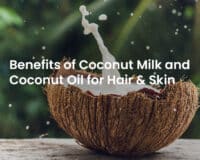Advantages and Benefits for Skin & Hair
INTRODUCTION
Neem leaves are widely utilised for their antioxidant, and therapeutic properties. This wonderful herb is high in fatty acids, vitamins, and minerals, all of which are needed for good skin and hair. When it comes to natural remedies for skin and hair care, neem stands out as a reliable option. It is renowned for its antibacterial, antifungal, and anti-inflammatory properties, making it an excellent choice for treating various skin conditions. Whether you’re dealing with acne, eczema, or psoriasis, neem can help soothe irritation and reduce inflammation. Its ability to cleanse the skin deeply also makes it effective in preventing breakouts and promoting a clearer complexion.
BENEFITS OF NEEM FOR HAIR
Neem leaves can be used in various ways, from neem oil to neem-infused shampoos, face wash and conditioners, making it easy to incorporate into your hair and skincare routine. Neem’s ability to soothe and nourish the scalp creates the ideal environment for hair follicles to grow, resulting in stronger, shinier hair. Moreover, neem leaves are rich in antioxidants that help protect the hair from environmental damage and also prevent breakage and hair loss. Neem for hair stimulates blood circulation in the scalp, thereby boosting hair growth. Not only does neem work wonders for the skin, but it also offers remarkable benefits for hair health. Neem oil is known to nourish the scalp and strengthen hair follicles, promoting healthy hair growth. It helps combat dandruff by eliminating fungal infections on the scalp while moisturizing dry and damaged strands.
*️⃣Soothes irritated scalp
Neem possesses antifungal qualities that may help in the treatment of dandruff. Neem leaves are an effective natural treatment for scalp infections and dandruff. They have antifungal and antibacterial properties that help reduce dandruff and soothe itchy and flaky scalps. They nourish and moisturise your scalp while reducing dryness, flakiness, and itchiness.
*️⃣Promotes hair growth
Neem cleanses and strengthens the hair follicles. This offers a lot of neem hair advantages. Increased blood circulation in your scalp promotes stronger and healthier roots, resulting in shinier, stronger, and healthier hair. Regular use of a neem hair mask or oil will provide you with long, thick hair with less effort. They also improve hair texture and prevent hair problems such as thinning, breakage, and hair loss. Once a week, apply a neem powder and coconut oil hair mask from root to tip and massage to improve blood circulation in your scalp. Repeat once a week. It is an age-old cure for hair loss induced by stress.
*️⃣ Prevents Premature greying
The high content of antioxidants in neem leaves prevents premature greying of hair caused by hormone imbalance, UV damage, and stress. Apply a mixture of neem powder and half a cup of yoghurt to your hair. After 20 minutes, wash it off with a gentle shampoo. One of the lesser-known benefits of neem for hair is that it is a great antioxidant.
*️⃣Conditions your scalp
Neem leaves, with their natural goodness, are a secret weapon for neem for hair care. They effectively condition the scalp, thanks to their potent antifungal and antibacterial properties. By reducing dandruff and itchiness, neem leaves create an ideal environment for hair growth and overall scalp health. What sets Neem apart from other skincare ingredients is its natural composition. It contains essential fatty acids, vitamins E and C, antioxidants, and other nutrients that contribute to overall skin and hair health. By incorporating neem for skin into your skincare routine or haircare regimen, you can achieve good skin and strong hair.
Read Also:7 Benefits of Tulsi For Skin And Hair
BENEFITS OF NEEM FOR SKIN
The immune-stimulating compounds found in neem have anti-ageing qualities that renew and nourish the skin. Neem for skin is known for its natural antibacterial, antifungal, and anti-inflammatory properties making it a powerful weapon against acne, blemishes, and other skin ailments. Neem not only prevents premature ageing but also promotes a clear, glowing complexion. Furthermore, neem for skin helps to retain the vibrant glow of the face. Neem is high in antioxidants and minerals, and it contains vitamin E, which has anti-inflammatory properties. Take a look at these neem skin benefits:
*️⃣Treats Acne
The antibacterial properties of neem help in the treatment and prevention of acne. Neem leaves help to keep skin from pimple-causing bacteria, thus minimising acne. To treat acne, apply undiluted neem oil to the affected area. To use as a face oil, dilute a few drops in water or any carrier oil, such as olive oil, and apply it to your face every night before bed for clear and smooth skin.
*️⃣ Fight the signs of ageing
Neem leaves are high in antioxidants, moisturising triglycerides, and vitamin E, making them an excellent anti-ageing treatment. They reduce wrinkles, fine lines, and dark spots while also making your skin appear firm and toned.
*️⃣Reduces blemishes
Neem leaves contain vitamin E, which helps heal and lighten stubborn acne marks and dark spots. They also have healing and calming effects, making them a well-remedy for acne scar treatment. Applying a neem paste to your face once a week can help you reduce blemishes and acne scars and get flawless skin and an improved complexion in no time. Apply one tablespoon of neem powder, lemon juice, and a pinch of turmeric to the affected area once a week.
*️⃣Moisturises skin
Neem leaves are natural moisturisers that can help soften and smooth your skin. They help to improve the texture of your skin and give it a healthy glow by reducing excessive dryness. Use neem oil every night before bed to keep your skin smooth and nourished.
FINAL THOUGHTS
Neem leaves, a truly wonderful herb for skin and hair care, continue to be utilised in a million beauty products for good reason. The beauty benefits of neem leaves are numerous and can be used for amazing skin and healthy hair in the form of oil, paste, powder, and juice. Using neem for hair care is a wise choice due to its remarkable healing properties. Whether you’re looking to address specific concerns or simply maintain healthy skin and hair naturally, using neem in your beauty routine can yield impressive results.
Neem is a crucial component in Dhathri’s range of natural skin care products. Dhathri’s Anti-bacterial Neem Body Wash provides effective protection for your skin, ensuring it remains protected from harmful germs and bacteria. In this neem shower gel, neem extract is used to provide a refreshing and cleansing experience for the skin. Meanwhile, the neem face wash is an excellent choice for combatting acne and preventing breakouts, particularly beneficial for those with oily or acne-prone skin. When it comes to hair care, Dhathri’s ayurvedic hair cleanser employs neem extract to enhance scalp health. Dheedhi Anti Hair Fall Herbal Shampoo is formulated from a blend of seven therapeutic leaves, with neem as the primary ingredient. This herbal shampoo serves as an effective therapy to fight hair fall, while also nurturing and strengthening your hair for a healthier and fuller appearance. This herbal shampoo is an ideal choice for individuals dealing with various scalp concerns.




























